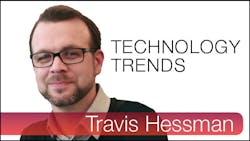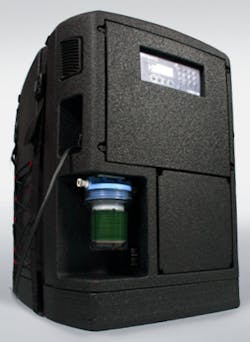IRI Jubilee Geek Out: The Big Business of Saving the World
I'm fresh back in the office from IRI's 75th annual meeting in DC – an innovation leadership extravaganza that pulled together the minds and talents of industry all-stars and manufacturing legends to celebrate the group's diamond jubilee.
And that's "celebrate" in the IRI sense of the word, which meant two days packed solid with presentations, discussions, panels and collaboration by and with some of the best minds in the industry.
The cast for the event included IndustryWeek Manufacturing Hall of Famer and former CEO of Lockheed Martin (IW 500/30), Norm Augustine; IW Tech Leader and retired CEO of Intel (IW 500/26), Craig Barrett; and Nick Donofrio, former Executive Vice President of Innovation and Technology at IBM (IW 500/10); along with Robert McDonald, CEO of Procter and Gamble (IW 500/11); Patricia Verduin, CTO of Colgate-Palmolive (IW 500/67); and John McDonald, vice president and CTO of Chevron (IW 500/3).
And that's not mentioning the researchers and professors weighing in from Harvard, University of Pennsylvania, NYU, University of Maryland and Olin College.
However, the real geek out moment of the event – besides shaking hands with NPR's Ira Flatow – was the presentation of the prestigious IRI medals to two of the most prolific innovators of our time – and personal heroes of mine – MIT's Robert Langer and Harvard's George Whiteside.
Combined, these guys have over 1,000 patents in their names and have authored somewhere around 2,000 articles on everything from bioscience and chemistry to robots and nanotechnology.
Basically, every device, medicine, therapy and apparatus that keeps us – and the biomedical industry – alive today has been influenced, if not invented, by these professors.
It was this point – the connection between the focus on industry and the focus on the society that depends on it – that really rang throughout the event.
Water, Water Everywhere
In Dr. Whitesides' address, he brought this issue to the fore by asking "whether the sole function of companies is to serve a financial objective or whether it serves a social function."
After painting himself as a "hardcore capitalist" – just to offset any ivory tower communist suspicions – he walked the group of equally hardcore moneymakers to a conclusion that, indeed, "combining a financial function with a social function may actually be a good things to do in today's business environment."
While not a totally novel concept, this thesis brought to light many of the ideas and technologies mixed into the week's presentations – from P&G's Children’s Safe Drinking Water Program to DEKA Research & Development Corp.'s water purification machines. Spending capital to save the world, it seems, is good business.
The latter technology is probably the best example.
DEKA founder Dean Kamen began the clean water project to help eradicate water-born diseases in under-developed countries.
The technology, powered by a solar array, is rather simple: As Kamen described it, you "just plug one hose into something wet…and clean water comes out the other side."
It's an impressive device, but that's not the point. According to Kamen, inventing the technology was the easy part, the hard part was getting it to the people who need it.
To do that, he turned to big business – Coca-Cola (IW 500/29).
"People think of Coca-Cola as a soda manufacturer," he said. "I think of them as the world's biggest logistics company."
By combining forces with Coke – which has deep reach into these regions – DEKA has been able to distribute these machines to people that need them the most – emblazoned with corporate logos and promoting big business message, but still saving lives and improving the world.
And that is a very big, very good idea – an IRI hallmark.
About the Author
Travis Hessman
Content Director
Travis Hessman is the editor-in-chief and senior content director for IndustryWeek and New Equipment Digest. He began his career as an intern at IndustryWeek in 2001 and later served as IW's technology and innovation editor. Today, he combines his experience as an educator, a writer, and a journalist to help address some of the most significant challenges in the manufacturing industry, with a particular focus on leadership, training, and the technologies of smart manufacturing.

